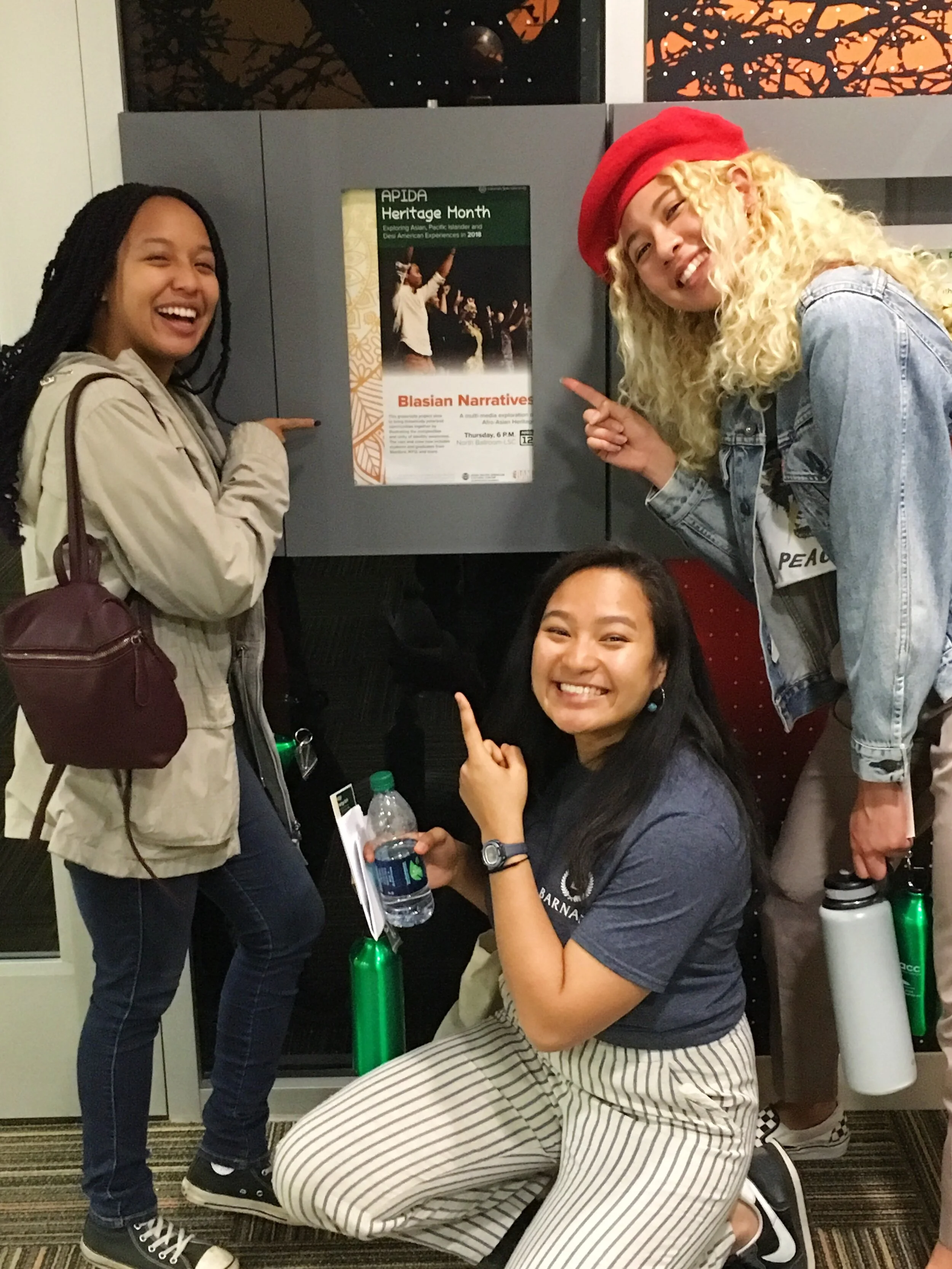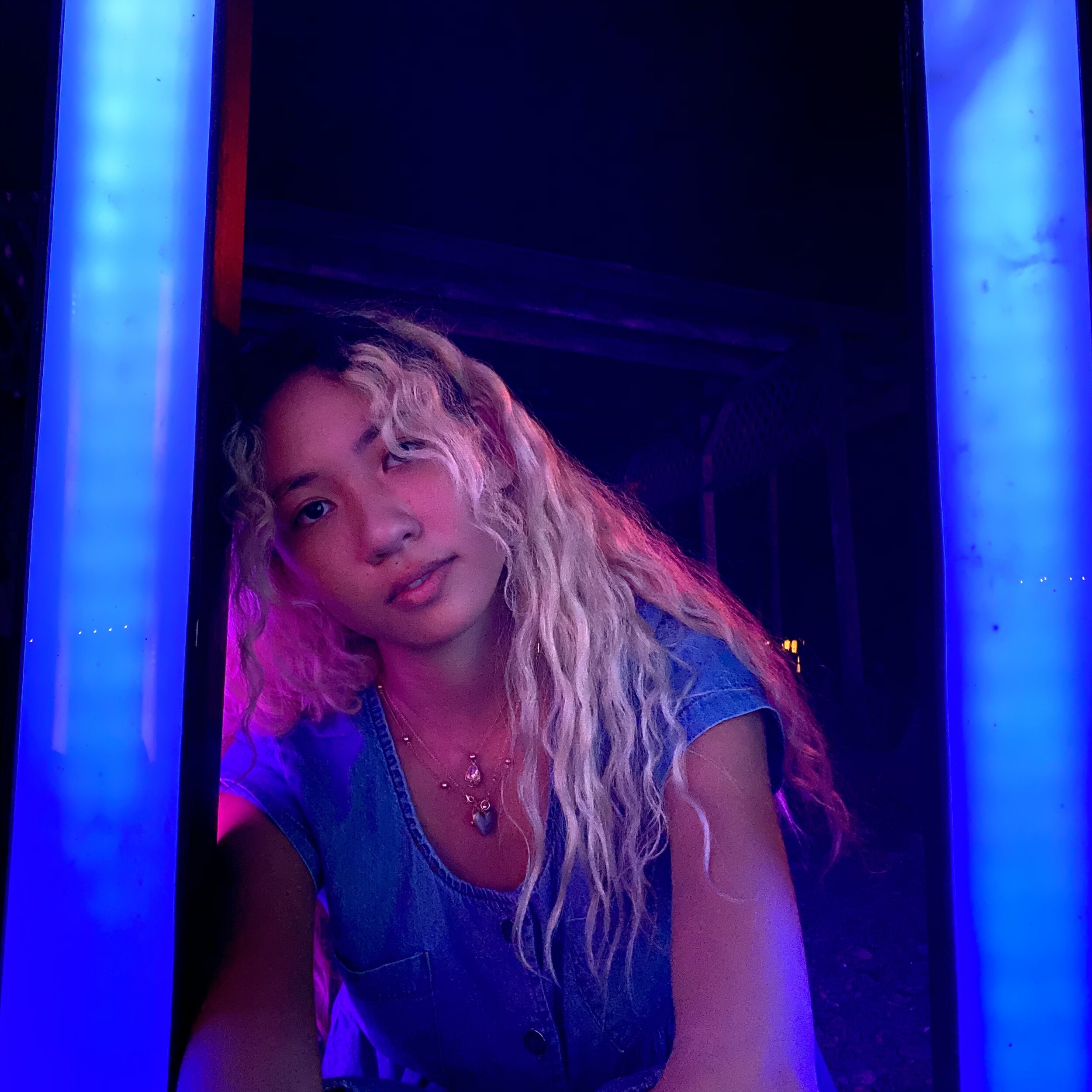A Conversation With Kamilah Zadi
On Thursday, July 8, I met with Kamilah Zadi, the Director of the Los Angeles Chapter of The Blasian Project, over Zoom, rocking silver necklaces and earth tones and greeting me with an infectious smile. She’s been busy working on virtual events and putting together a zine, all catered to those who identify as mixed with Black and Asian. Zadi, 22, is a Korean-Algerian Berber college graduate who joined The Blasian Project a couple of years after it was started in 2017. Her friend had posted about it online when she was a freshman in college.
“It was the very first piece of Blasian-specific media I had ever seen,”
Zadi says. “And I know there’s definitely a lot more mixed Asian content and spaces out there now, but even 5 to 6 years ago, there really wasn’t anything.”
The Blasian Project was started by two students at Morehouse College in Atlanta—Jivan Atman, a Cambodian exchange student, and Julian Booker, a fellow student at Morehouse—who bounded over their Asian background within a predominantly Black space. Their relationship inspired the conception of Jivan’s thesis, Blasian Narratives, a docu-theatre experience including monologues written and performed by mixed Black Asians from Morehouse, their sister college, Spelman, and other universities. And even after graduation, the Blasian Project and Blasian Narratives continue to thrive with cast members and chapters all around the United States.
Zadi has really found a community with The Blasian Project. Being a part of the group, she gets the opportunity to explore her identity with those who also feel the same and have similar experiences, especially growing up being part of two contrasting communities. Zadi also addresses the complications of being Blasian and the unfair pressure put upon them.
“Being Black and Asian, we [sometimes] have to do the work of speaking for both communities”
“…and bridging the gaps between those communities, but the issues are so much more complicated than that,” Zadi explains.
“It’s assuming that Blasian individuals have all this power, and it feeds into the same narrative of ‘mixed people are going to solve racism.’ But that’s not our sole purpose, and it takes more than that to combat deep institutional racism, and if anything, positing mixed people like that exacerbates the racist issues that are already there.
Like when I was growing up, going to Korean school. I was pretty excluded because I just looked so different, so I felt excluded from that community.”
“There’s just no way for a single individual to speak for and to a whole community.”
“…We are not necessarily powerless, but asking someone who’s not a public figure or a legitimate activist assumes that Blasians inherently have all the tools to communicate these issues to each respective community.”
Zadi also mentions the privilege that Blasians have and that they want to mention every perspective and topic they can when they are in meetings. ==
“Just because we’re Black and Asian doesn’t mean we don’t have any mixed privilege,”
Zadi says. “There’s always a lot to unpack. Every single conversation always goes in a different direction, and it can come from a wide variety of people, and…we [make sure to listen.] We get a lot of Black and Asian couples, which I also really appreciate seeing because, you know, they’re getting prepared for what to expect with their kids, and that’s something that we didn’t have growing up. There was nothing that my parents could go to.”
Zadi also dives into the term “Asian-American” and how it’s become a political term that isn’t the go-to identifier for her and many others.
“It’s a great way to get resources to communities and to advocate for groups, but it doesn’t really resonate as a personal identity,”
Zadi says. “I just wish it wasn’t so broad. I’m Korean American, so that’s how I describe myself over Asian American. And so, I feel the same when I look at the term “Blasian.” I wouldn’t personally identify as Blasian; I would say I’m Korean and Berber or Algerian. The translation itself is just so broad, and even in Blasian Narratives, each one of us is a different mix. And even the people that are the same mix grow up in very different parts of the country. There’s a pair of twins who are Black and Japanese, and they grew up in Hawaii, but we have another member who is also Black and Japanese, but she grew up in Boston. It’s just so different.
But the term ‘Blasian’ is what connected me to this wonderful community, and so I will always be grateful for it. ”
Zadi has gained access to some amazing opportunities through the Blasian Project, like getting to universities like Harvard and UPenn for talks and becoming part of the second volume of Blasian Narratives, which started everything with Atman and Booker at Morehouse College years ago.
“It’s been giving me a lot of confidence, and it feels like the possibilities are endless,”
Zadi says. “And when connecting with other people, the change that you create doesn’t have to be monumental. It could be having a conversation with somebody you know. It really starts with your immediate circle and having these discussions with them. And I think that really helps to build confidence because
“I have some friends who would be kind of hesitant about having deep discussions about race and things like that, but as we get older and more things are happening in the news, they clearly want to talk about it more. So finding someone that you can trust and having these conversations is a great way to build that confidence.”
Zadi especially encourages young girls to go out there and speak their truths and be unapologetic in their passions since that is what led her to be part of The Blasian Project in the first place.
“Teenage girls do have a lot of power that is underestimated,”
“…and I think, especially Asian teenage girls [and femme-presenting people] are expected to be more quiet and demure. But I think that’s definitely changing, as young women are given more credit for being culture makers. And I want things like Blasian Narratives to include more high school-related events because they could really benefit from it. Reading about feminism and the accomplishments of the Black and Asian communities are also just really empowering as a teenage girl.”
You can find Kamilah Zadi on Instagram as well as the Blasian Project on Instagram.
Kamilah Zadi is an animal lover, thrift shop aficionado, and outspoken intersectional feminist from Los Angeles. She is a recent UCLA grad with a degree in Political Science and a concentration in Race and Ethnic Politics. She works as the Los Angeles Chapter Director for Blasian Project, a multimedia project to uplift the voices of mixed Black and Asian folk. She is currently apprenticing to become a lawyer, and is currently working with organizations that combat the school to prison pipeline. She also supports her mother's nonprofit, Asian Americans for Housing and Environmental Justice, which works with Asian and Black seniors and builds interethnic/racial coalitions in Southern California.




